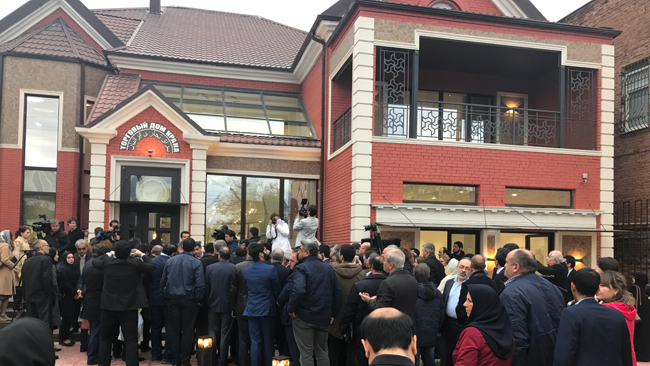Trade between Iran and the city of Astrakhan in Russia stood at $320 million, registering a 15% growth in 2020.
The statement was made by the governor of Astrakhan in a meeting with an economic delegation from Iran held in the city located in southern Russia, IRNA reported on April 15.
"Trade between Iran and Astrakhan registered a 6% and 15% growth respectively in volume and value last year," Igor Babushkin was quoted as saying by IRNA.
Hadi Tizhoush Taban, chairman of Iran-Russia Joint Chamber of Commerce and head of Gilan Chamber of Commerce, Industries, Mining and Agriculture; Ali Mohammadi, consul general of Iran in Astrakhan; and Vladimir Galafkov, the head of International Relations Agency of Astrakhan attended this meeting.
In December 2020, a shipping line between Iran and Astrakhan started operating on a trial basis – the first step in establishing regular container transportation in Caspian Sea.
In May 2020, Russia's Astrakhan Port plans to launch a terminal for exporting edible vegetable oils to Iran.
After a trial operation, it will tentatively pump 10,000 tons of vegetable oil a month.
The maximum monthly utilization of the terminal is projected at 40,000 tons of vegetable oil, UkrAgroConsult reported.
Astrakhan, key to Iran-Russia trade
The Russian port of Astrakhan is a hub of commercial activities for nearly 200 Iranian firms making the port their largest center of economic activities in Russia.
Iran Trade Center was inaugurated in Astrakhan in October 2017 for boosting and facilitating trade between Iran and Russia.
The center, launched by Gilan Chamber of Commerce, Industries, Mines and Agriculture, opened 100 years after the shutdown of the previous such establishment in Astrakhan.
According to Astrakhan’s Minister of International and Foreign Economic Relations Denis Afanasiev, the opening was an “unprecedented event” and would strengthen trade links between the two countries.

Iran Trade Center was inaugurated in Astrakhan by Iran Chamber of Commerce in October 2017.
The new institution is home to 14 chambers of commerce and industries from 14 Iranian provinces, which will exhibit their products.
“The house will provide Russian entrepreneurs with a new opportunity to discuss projects and contracts with their Iranian counterparts,” the minister also told Sputnik.
“Businesspeople from Astrakhan or elsewhere in Russia wishing to build trade relations with Iran can come to the house, look at the products and choose what they need. Here they can contact the representative of a particular company, conclude trade agreements and discuss the delivery logistics.”
Afanasiev explained that this is precisely the point of opening this house: to bring the businesspeople of the two countries closer, to establish contacts for logistics, for Russian entrepreneurs to get to know Iranian products and for Iranians to get to know them.
“I believe this structure will fill a certain niche, that is, it will close a vacuum that exists in business between Russia and Iran, and creates good conditions for increasing trade turnover and cooperation,” he added.
Discussions are ongoing with Iranian partners about the creation of a Russian house of commerce in Iran, which would further stimulate relations between small- and medium-sized businesses of the two countries.
Iran’s Consul General in Astrakhan Ali Mohammadi told Sputnik that Iran aims to use the new center to better understand the Russian consumer market and increase its exports.
Mohammadi said the new house of commerce is different from other centers in Russia such as Moscow’s Food City where Iranian producers have pavilions to present and sell their food, but they don’t have space for business negotiations.
“In Food City, the goods can get customs approval and be put up for sale, while this building will become a venue for negotiations and getting acquainted with the content and trends of the two countries’ markets. Here, Iranian producers can hold short-term exhibitions of their goods,” he said.